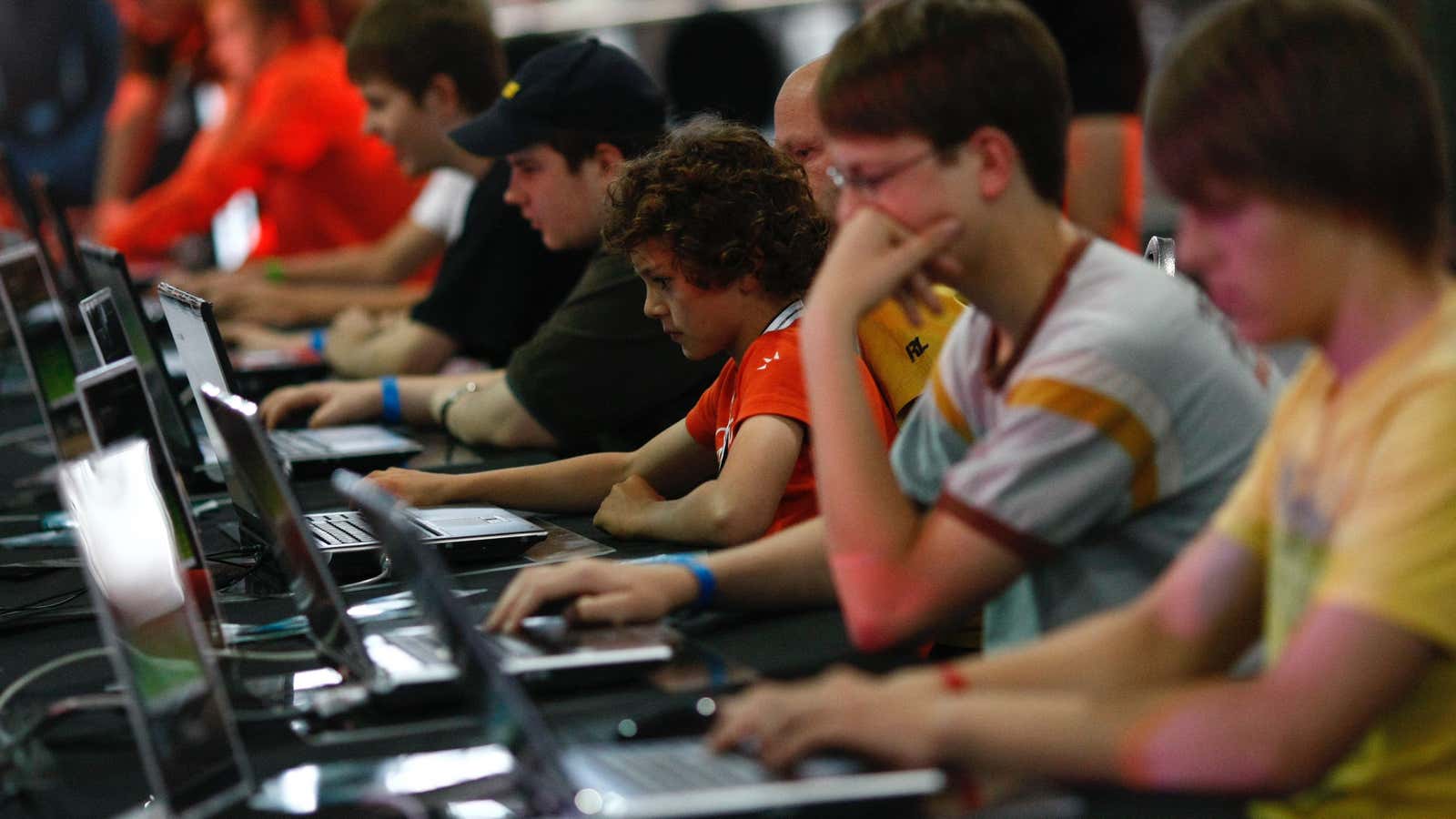Here’s a finding that will give parents pause: The more time kids spend on their smartphones, the more likely they are to skip their homework.
In a new study, researchers at the American Academy of Pediatrics found a correlation between the time school-aged children spent watching TV, playing videogames, and using computers, tablets, and smartphones with an increased likelihood of not completing their homework assignments.
Kids who spent two to four hours each day using digital devices outside of schoolwork were 23% more likely of “always or usually” not finishing their homework compared with children who spent less than two hours consuming digital media. The gap widened even more when kids diverted more than six hours of their time to digital media. Compared with students with less than two hours of daily screen time, students with more than six hours of exposure were 63% less likely to complete their homework.
In another study, pediatricians from Brown University’s School of Public Health analyzed 64,000 children aged six to 17 from the 2011 to 2012 US National Survey of Children’s Health. Their media use and homework habits were logged by a parent or guardian. According to the sample, 34% of children who browsed their devices for more than four hours compromised on finishing their homework at least half the time compared with kids with less than two hours of digital media exposure.
Furthermore, the Brown study suggests that children who spent more time in front of screens also cared less about doing well in school, tended to leave tasks unfinished, showed little interest in learning new things, and failed to stay calm in the face of challenges. “Parents should consider these combined effects when setting limits on digital media devices,” said Stephanie Ruest, the study’s author.
While it’s easy to correlate increased screen time with poor academic performance, these devices have been found to boost performance in some cases. A study of 12,000 Australian high school students published in August revealed that students who played videogames almost everyday on average scored roughly 15 points higher than average on math, reading, and science tests. This same study, however, showed that more time spent on social media platforms like Twitter and Facebook reflected a drop in scores.
Amid various studies supporting and refuting the benefits of digital media use, there is no one-size-fits-all solution to curbing the amount of screen time, admits the American Academy of Pediatrics. For school-aged children and adolescents, moderate media use is permissible unless it interferes with other healthy behaviors like outdoor activity, sleeping, and eating well.
